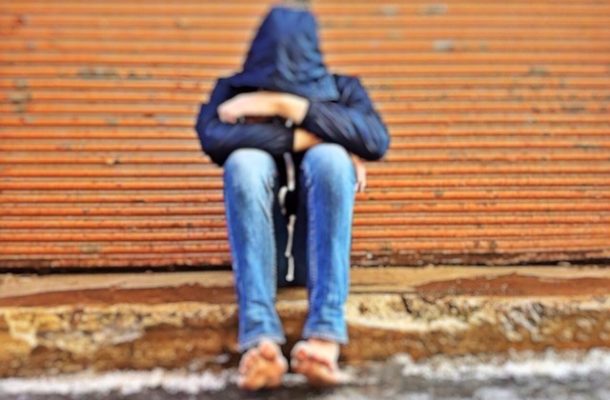The cycle of youth homelessness in Australia – and how you can help

1 in 200 Australians are sleeping rough on the streets or couchsurfing. How does this happen? Some typical reasons for children and young people becoming homeless include: domestic violence, sexual assault, emotional abuse, neglect, alcoholism and drug addiction, chronic illness and family bereavement.
We may live in “the lucky country”, but that cannot change the reality that on any given night, 1 in 200 Australians are sleeping rough on the streets or couchsurfing [1].
Sadly, around half of these homeless people are under the age of 25, according to research by the NSW Advocate for Children and Young People [2]. However, the actual number of children and young people experiencing homelessness is probably much higher.
So how does this happen? Some typical reasons for children and young people becoming homeless include: domestic violence, sexual assault, emotional abuse, neglect, alcoholism and drug addiction, chronic illness and family bereavement.
There are a number of drivers behind the cycle of youth homelessness. Some of these include:
– Ethnic background. When parents are born overseas, it can be difficult for them to overcome language barriers and cultural differences, and to access support services and find employment. In some cases, the parents have to get low level, poorly paid jobs, which can impact status within the family and sometimes lead to domestic violence.
– LGBTQIA+ sexuality. Another significant factor is sexuality. All too often, family members treat young people who reveal their LGBTQIA+ sexuality abusively, and some are kicked out of home. Around 30% of young people in our care at Stepping Stone House identify as LGBTQIA+.
– Poor parenting skills. There is no universal ‘right’ way to be a parent, but some parents struggle more than others. When an adult doesn’t understand key skills such as open communication and emotional nurturing, poor parenting can result. Conflict frequently arises when there is a lack of communication and emotional support within the family.
What is the solution?
– Early intervention and education. Good parenting skills are essential for helping parents to cope with caring for children effectively. As a society, we need to actively teach good parenting skills through avenues like schools, government-funded courses and community programs.
At Stepping Stone House for example, we do a lot of restoration work and counselling within families. We reconnect families with estranged children as soon as possible, because early intervention is statistically more successful. A trained social worker will act as a mediator and monitor the rebuilding of relationships between parents and children.
– Long-term accommodation and care. I’ve previously written an Open Forum blog about why we need to extend accommodation and financial support for young people leaving Out-of-Home-Care (OOHC) from 18 to 21 years old (read it here: https://www.openforum.com.au/we-need-to-make-housing-accessible-for-young-people-leaving-out-of-home-care/).
I can’t emphasise enough how important it is for the Australian government to ensure that children and young people in care have ongoing support from childhood all the way through to their twenties – especially in Sydney, where the rental costs are so high.
– Community action. The adage of “it takes a village to raise a child” is key to breaking the youth homelessness cycle in Australia. Every community member has a responsibility to report children being neglected or abused to Family and Community Services.
Members of the community can also make a positive impact by participating in fundraising events to help established organisations continue to provide accommodation, care and development for young people at risk of homelessness.
Stepping Stone House is hosting Sleep Under the Stars 2017 on Friday 27th October. Visit their website for more information and to register: www.sleepunderthestars.com.au
[1] Homelessness Australia, 2011, http://www.homelessnessaustralia.org.au/index.php/about-homelessness/homeless-statistics
[2] ACYP, 2017 http://www.abc.net.au/news/2017-04-05/raising-awareness-about-youth-homelessness/8417680
Jason Juretic is CEO of Stepping Stone House, a not for profit organisation providing medium to long term accommodation and development for young people who are homeless, or who are at risk of homelessness or are living away from their families aged 12 to 24 years old.













